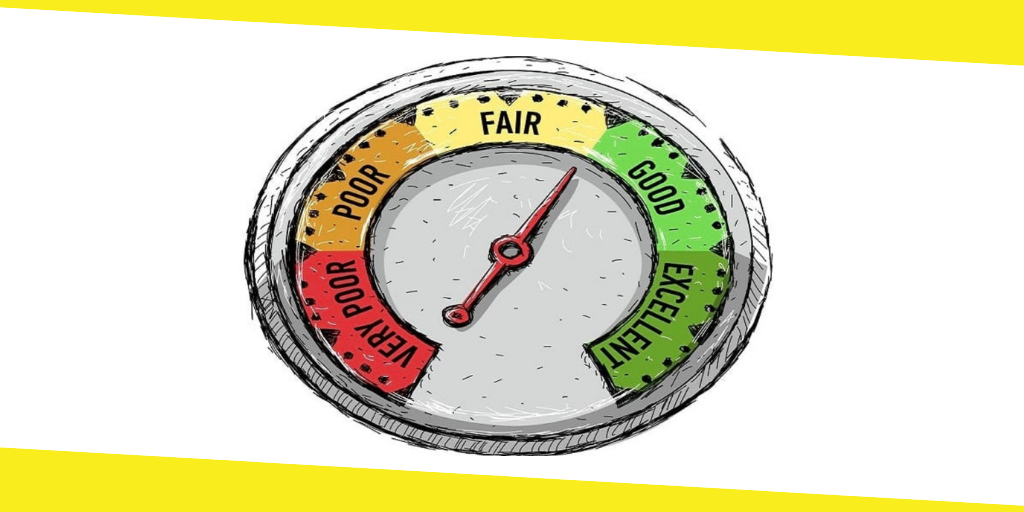Fair is Better than Bad, However, What Can and Can’t You Do with Fair Credit?
This post was last updated on May 8th, 2024

Your Credit Score rating defines the extent of privileges you get from financial institutions. With a fair credit, you are better than with a poor credit score; however, there are things you can and can’t do with fair rating. Let’s look at some of the things can do with fair credit score and those that we can’t.
Things you can do with a fair credit
Access to insurance premiums but with an elevated cost
With one’s credit, insurance companies have the right to decide whom to offer with a higher or lower price. These companies choose using a study (used the early 90s), to substantiate charging a lot from people with bad credit. For instance, homeowner insurers use credit-based insurance scoring to conclude your premiums. The better your credit position, the lower the cost on your insurance premiums.
Mostly, insurance companies look at your credit report in decision making. Details like: One’s credit and payment history, type of credit you be indebted, outstanding debt, and new credit application made lately.
Access to loans, though pricier than with a good credit
Majority of people think they do not qualify for a credit card or a loan such as a mortgage with fair credit. Ever thought like that? Well, you’ve been wrong all this time. The truth is financial institutions that extend loan offers to individuals with fair credit, however, with higher interest rate or depending on the required amount of down payments.
“Most lenders and card issuers set their standards for scores necessary for approval.”
Interestingly, lenders need borrowers with fair credit score because they have overhead. Besides, there are loans available to those with fair credit where lenders mostly do this to maximize production and profits. As much as borrowers with fair credit are most likely to delay their periodical payments or even miss to pay entirely; this doesn’t exclude them for a loan.
Pay less than you owe
People with fair credit, as earlier stated may end up not paying back the debt as supposed. Remember, failure to settle your balances can negatively affect your credit score. As much as this should worry you, it must not “eat you.” Some creditors may accept debt forgiveness or paying less than the total amount you owe, and your debt is considered settled. Such instances are not guaranteed, and therefore it’s appropriate that strive to stay afloat. Having a good credit report must be every person’s motivation, I believe.
Things you can’t do with fair credit
Renting a house or an apartment
Have you ever been denied your rent application because of poor credit? I’ll leave you with that to answer. Nevertheless, you should note that none of the landlords will ever tell you they confirm ones report or refute a lease because of poor credit. The fact is, this is normal, and they do check all the time. Remember, the majority of prospective landlords’ review ones credit score before signing any rental agreement. Also, some go to the extent of looking how habitually you miss payments and even how you reimburse your bills. The property management companies avoid the risk of chasing after tenants demanding for a rental fee. That’s why it’s hard to rent you an apartment if your credit history isn’t pleasurable.
Applying for debt consolidation loans
The term “debt consolidation loan” must be familiar to you if you are reading this, I hope I’m right. This loan is used to pay off in a lump sum. However, the majority who consolidate their loans forget that they are ballooning into huge deficits thus fair credit. That’s why lenders sometimes refuse to consider borrowers for this kind of loan wondering if they settle payments on time.
Also, lenders doubt, if one can clear their balances when they multiplied over a specified interval, will he/she manage to make even a single payment all at once for the equivalent amount? The question gives an open outlook that it’s hard to qualify for a debt consolidation loan with fair credit. However, this is not always the case as some believe that one can start improving their credit report with a debt consolidation loan.
Receiving a cell phone contract
With a lousy credit, one is not able to sign for a long term agreement that requires monthly payments. Just as cell phone companies; they give juicy rebates to vendors for those discounted or liberated phones one gets after signing up for a long term contract. Therefore, if you have bad credit, try to advance it to a higher level to succeed in these attractive deals. For instance, Verizon does not want to broaden their best deals (on contracts) or lend out the money, if one fails to keep up with his or her monthly payments and more so, with bad credit.
Further, some companies such as cable are allowed by the Federal Trade Commission to charge an additional fee (risk-based pricing) because of one’s credit report. Besides, you can still settle for pay as you go plan (for a new Smartphone) with your poor credit, though pay a higher amount.
Getting a tremendous job
Just as said in renting a building, also most employers will not tell if they deny one a chance of getting a job because of one’s credit. The reason for which they make it undisclosed is that they are not lawfully allowed to make any hiring verdict depending with your credit report. Even though it’s not permissible, the majority of them do so to get a sense of your financial responsibility. Furthermore, they check if you have missed payments, any liquidation cases, or you have failed to follow your credit agreements. In case they feel that you don’t qualify for their available job (because of your fair credit), they will say “you did not succeed.” Moreover, the most reason for job rebuff by the potential employers will be “His or Her money troubles may start causing problems at work.”
In conclusion, if you want to improve your credit score from fair to good, it’s crucial to know things that lower your credit to get yourself in favorable terms. Some include poor payment history, high rate utilization rate, credit history, late payments, and total debts among others. Also, every person is entitled to at least one free copy of his or her report at Annual Credit Report for every 12 months. Know your stand as early as possible and make yourself much better.
Recommended For You
Manage Your Goals Like a Pro with These 5 Investment Options
Most Inside
Most Inside offers high-quality recommendations and valuable updates to enhance all aspects of your life, providing premium guidance and enriching experiences.




